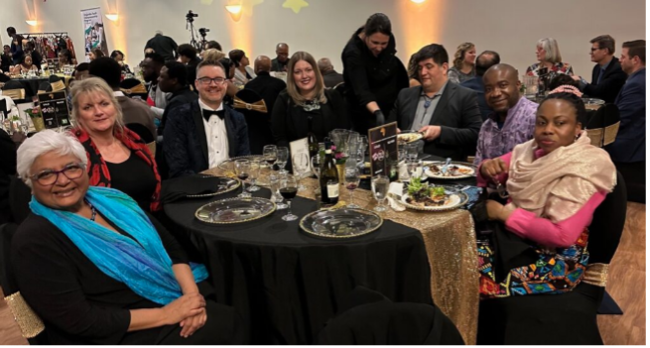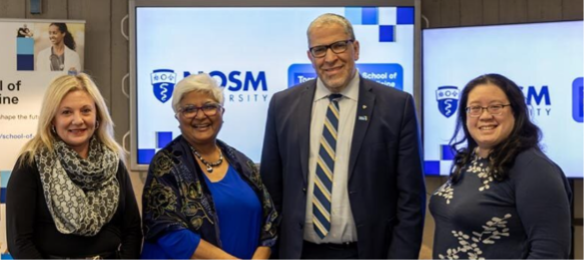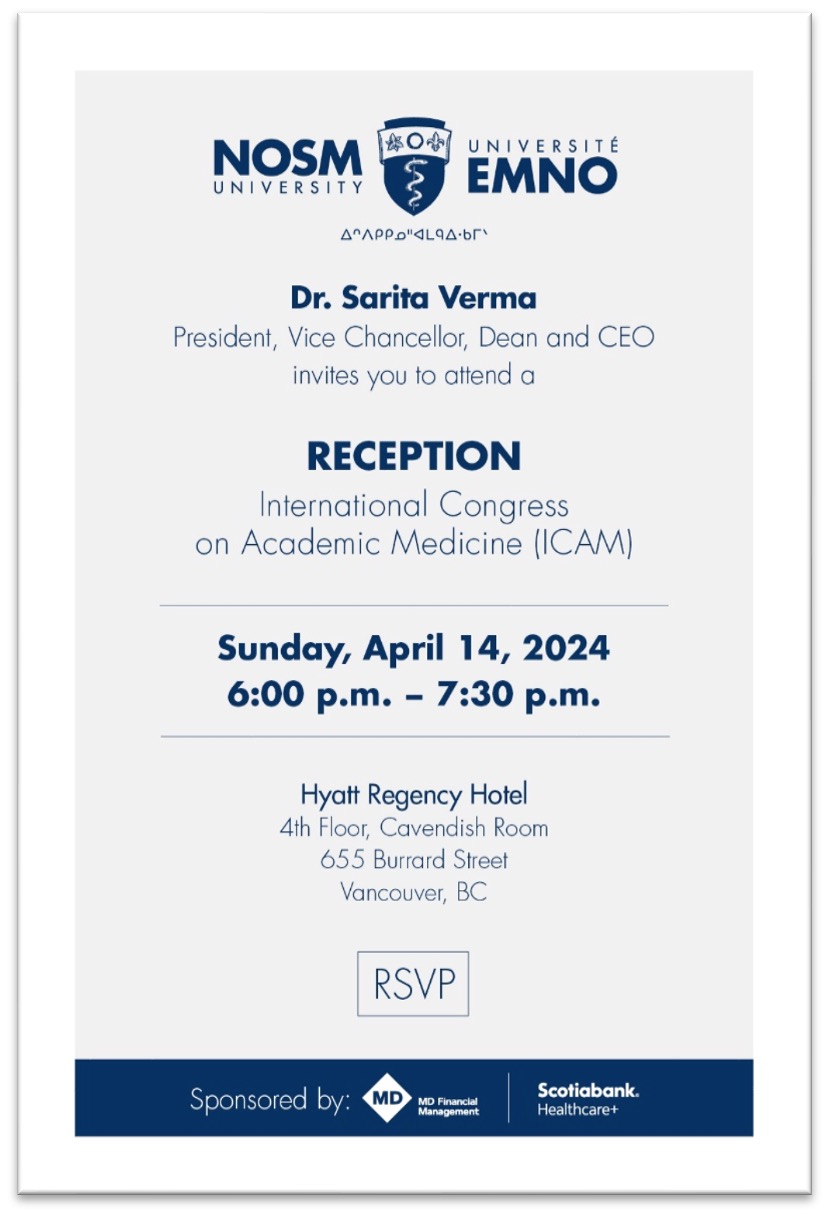The Joy of Practising Family Medicine
Posted on February 20, 2024
Rarely are we given a window into our own impact on the lives of others. Recently, someone reached out to me on social media, and gave me perhaps the best gift I have ever received. This person is a former patient from my time as a practising family physician in Kingston, Ontario. Although I have not been in practice there since 2005, she wanted to say hello, and to let me know that my decade-long involvement in her care, starting when she was a teenager, had “saved her Ife” and “inspired” her to go to medical school.
What a moment.
I am an immensely proud family doctor! The joy, the challenges, the wonder, and the privilege to be in people’s lives are just part of what makes this specialty so incredibly special. For the 25-plus years that I was in practice—much of the first decade as a comprehensive family doctor doing everything from prenatal to palliative care—I loved it. I was a late bloomer in medicine, having come to it as an adult learner. I originally considered being a surgeon, and then a forensic pathologist (which would have combined my careers in law and medicine), but I ended up as a family physician. I was attracted to the versatility, fun, and astounding complexity of being a health-care detective. After all, family doctors are the ones who make the diagnosis.
In fact, family medicine is the heart and soul of medicine. It is the gate through which patients access specialised care and it is the specialty that provides continuity. Family medicine is about relationships and caring for entire families across multiple generations. Family doctors are part of a community. They have the privilege of being part of patients’ entire life cycles. Family medicine is inspiring, impactful, and indeed never, ever boring.
Family medicine in Canada has been perceived as being in crisis for a number of years. In fact, the fears that fewer students are choosing family medicine as a career have been abundant lately. According to the Canadian Residency Matching Service (CaRMS), in 2022, only 30.7% of graduating Canadian applicants ranked family medicine as their first choice of discipline. Is that really so sudden or alarming? In truth, the match rates have not changed dramatically in some time, with CaRMS reporting that 31.4% chose family medicine in 2021, 36.3% in 2013, 31.8% in 2010, and 31.6% in 2009. In fact, in 2001, fewer than 28% of graduates chose family medicine. This crisis is not new. The high point was 38.5% in 2015.
The real issue is that, over the past few years, after the residency match there have been an alarming number of unfilled (unmatched) positions left over in family medicine in Canada. In 2023, the number was 268. Of note, there were a total of 194 unmatched applicants that year (not including International Medical Applicants and US applicants). Often, that means that students who chose a specialty where there are fewer allocated positions (such as ophthalmology, otolaryngology, or plastic surgery) will not take on family medicine at all and are likely to wait until the following year to try to get into their specialty of choice. The ongoing myth that there are insufficient residency positions for graduating Canadian students appears to be just that: a myth. The reality is that if more students chose family medicine, there would probably be sufficient positions for them.
So, how do we turn this around?
For one thing, we should talk more about the joy of family medicine rather than the challenges and problems. On February 1, 2024, we held the fifth annual President’s Lecture Series—Reviving the Heart of Health Care: The Joy of Practising Family Medicine. It was a fantastic turnout. We had a robust discussion about why graduates should consider family medicine as a career in health care. Dr. Michael Green, President, College of Family Physicians of Canada, spoke about the idea that family medicine is in fact a specialty, and about the breadth and depth of its scope. Dr. Mekalai Kumanan, President, Ontario College of Family Physicians, spoke about recent challenges associated with primary practice as well as solutions, such as the Ontario-specific model of family health teams and how family physicians influence change as advocates.
A panel including Drs. Sarah Newbery (Associate Dean, Physician Workforce Strategy in Marathon), Adam Moir (Associate Professor and Family Physician in Dryden), and Dave McLinden (Associate Professor and Site Liaison Clinician in Huntsville) shared their first-hand experiences in rural Northern contexts and their love for their work. Finally, Drs. Émilie Gillissie, Rebecca Bourdon, and Chandelle Mensour, Family Medicine Residents at NOSM University, told us why they chose to pursue a career in family medicine, and how they envision the future of the discipline.
NOSM University is stepping up to build up interest in Family Medicine and address the critical shortages. Nearly 100 people logged on to watch the fifth annual President Lecture Series on WebEx and YouTube live, and the recording was viewed nearly 500 times in the 10 days following the event. The President’s Lecture Series has also been featured in the news across the North:
- CTV News – “NOSM University touting joys of family medicine”
- Sudbury.com – “Family medicine crisis far worse in Northern Ontario”
NOSM University has been highly effective at training family physicians—typically having 50% of our graduates making it a career choice. It’s the highest rate in Canada, and our graduates are happy family doctors. Even so, we are hard pressed to keep up with the rate of retirements and physicians leaving practice. The solutions for this are complex—training and educating family physicians and doubling the size of our medical school is only one strategy. The systemic issues are significant. The models of remuneration, distress of hospitals struggling to stay open, and the fact that it is a buyers’ market in which we are competing with the rest of Canada—where there’s an equally significant shortage of physicians—means that Northern Ontario requires special attention. Adequate housing, schools for professionals who have children, jobs for their partners, excellent working environments and turnkey office operations, adequate allied health professionals, including nurses, and infrastructure to support family medicine are in desperate need.
NOSM University, along with other health-care institutions, is critical to the economy of Ontario. Without a strong health-care sector, industry will not invest in our communities. With an increasing burden of chronic diseases and mental health and addictions, along with an ageing population, support for NOSM University, the hospitals, and the health-care system is at a critical point. Notwithstanding the recent announcements of infusions of funding from the federal government, the trickle down to the medical universities and hospitals is yet to be seen. We are working frantically to ensure that the fragile infrastructure does not collapse.
NOSM University will continue to do its part and to advocate for leadership and financial support for us all.
Miigwetch, thank you, marsi, merci,
Dr. Sarita Verma
President, Vice Chancellor, Dean and CEO
NOSM University
Black History Month
Launched February 1, a new subject guide focused on Black History Month resources is available from NOSM University’s Health Sciences Library, thanks to a collaboration with the Equity and Inclusion team.
Read more about the Library Guide for Black History Month.

On Saturday, February 3, Dr. Verma and members of the NOSM University community attended the Black History Month Gala (pictured above) hosted by the Afro-Heritage Association of Sudbury.
Resident Awareness Week – February 5-9, 2024
February 5-9, 2024, was Resident Awareness Week in Canada. Residents are pillars of the community and provide indispensable care to patients at a time when our health-care system is stretched.
Learn how we are inspired by NOSM University’s residents.
NOSM University and TMU sign Affiliation Agreement

Dr. Verma and Joanne Musico, Director, Communications and External Relations, met with Toronto Metropolitan University (TMU) President Mohamed Lachemi and Dr. Teresa Chan, Dean of TMU’s new medical school, in Toronto on January 22, 2024. A three-year affiliation agreement aims to build a collaborative and reciprocal relationship that leverages the expertise of both organizations and supports a forward-thinking approach to medical education.
Learn more about NOSM University’s partnership with Toronto Metropolitan University.
You’re Invited: NOSM University at the International Conference on Academic Medicine (ICAM)



